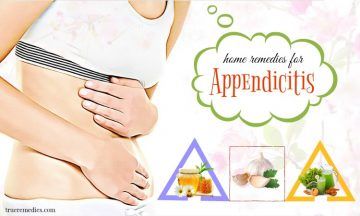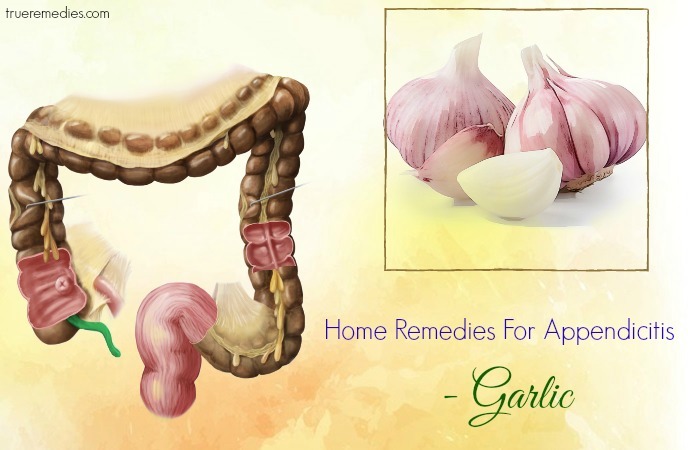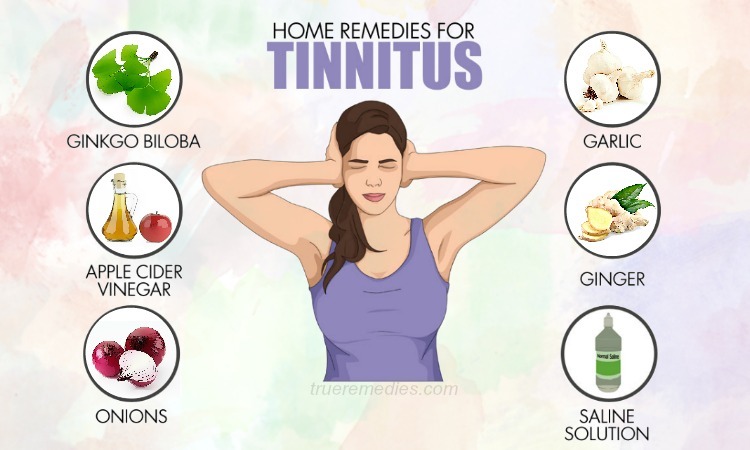Updated: 11/20/2019
Contents
Appendicitis is one of the most common diseases, even in children 3-4 years old. It was estimated that about 300,000 appendectomies are executed annually. Fact is, it is considered as the most common emergency surgery in the US [1] [2].
This is a phenomenon in which the appendix is inflamed, leading to pain and discomfort for the patient. Appendicitis is a condition that requires surgery. However, if the condition is not severe, the patient can completely self-treat with some measures.
I know that the reason you are reading this article of Top 10 Natural Home Remedies For Appendicitis Pain is to learn how to treat this problem at home, but before that, you had better understand some basic information about it. By doing so, you can accurately determine your condition to choose the most appropriate treatment.
What Is Appendicitis?
Appendix is a part of the body. It is small in size as a thumb and it is located to the right of the abdomen. One end of the appendix is sealed, while the other ends connects to the caeca (the first segment of the colon). Many people think that the appendix has no function in the body, even if it is harmful, so they want to remove it from their body. However, according to recent studies, William Parker and Randal Bollinger – two scientists from Duke University (North Carolina, USA) – have shown that appendicitis plays an important role in the digestive tract.
The gastrointestinal tract has a beneficial bacterial membrane which lives symbiotically and plays an essential role in food fermentation and vitamin synthesis. After a period of observation, these two scientists realized that the number of beneficial bacteria would gradually decrease from the appendix. So, appendicitis is a good source of beneficial bacteria for digestion. In particular, in case of severe diarrhea, the digestive system loses a large amount of useful bacteria, the help from the appendix is extremely necessary. This helps the body avoid the invasion of harmful bacteria [3].
TrueRemedies Partner Solutions

Need a Help from the Leading Expert Online, Available 24/7?
They’re all here and ready to answer your questions online or by phone. Keep asking questions until you get the answer you need.
However, in some cases, appendicitis causes a lot of pain. When the appendix is blocked due to certain causes such as kidney stones or foreign bodies, it is very susceptible to swelling and infection, causing the appendix to become inflamed. In other words, appendicitis is a phenomenon in which the appendix is inflamed, swollen and infected, leading to pain and discomfort for the patient. This is a fairly common disease that can occur at any age, even in children 3-4 years old. This disease is not contagious and it is not inherited. Some cases of appendicitis have no complications, so the treatment is very simple. But there are also many cases in which appendicitis causes serious complications, including death. Therefore, the timely detection and treatment is extremely necessary.
What Are Common Causes Of Appendicitis?
The onset of this disease is the congestion in appendicitis. This causes fluid retention and the pressure inside the appendix increases, leading to two consequences: severe anemia and infection in appendicitis caused by bacteria in the caeca, including Gram (-) (Coli, Klebsiella, Enterobacter, and Pseudomonas), intestinal colonies and bacteroidefragilis [4].
- Congestion In Appendix
The reasons for this are: kidney stones, roundworm, or pinworm penetrate inside the appendix; the lymphatic cyst system in the appendix is swollen due to a blocked appendix; the fluid in the appendix is condensed; contraction of either of the ends of the appendix; the appendix is folded. Congestion in appendix will provide a favorable opportunity for the bacteria to form and develop. These bacteria make appendix be infected, leading to appendicitis.
- Appendix Is Infected
If the appendix is blocked by bacteria, it will become inflamed. On the other hand, appendicitis is caused by septicemia or other infections in lung, ear, nose, or throat (however, this cause is rare).
- Congestion In Appendicular Blood Vessels
There are three reasons for this: the congestion in appendix (pressure in the appendix increases, blocking small vessels connected to the appendix. At that time, the appendix is not nourished, it is disturbed); infection (the toxin of the Gr (-) virus causes the blockage of the blood vessels); stress (nervous tension can cause blockage of the appendicular blood vessels. Poor blood flow causes the appendix is disturbed).
- Other Causes
Appendicitis can also be caused by inflammation and infection which are caused by Crohn's disease, measles, amoeba, enteritis, respiratory infections and mononucleosis.
What Are Common Symptoms Of Appendicitis?
Appendicitis is not so difficult to identify, so you may think that you have appendicitis if you have the following symptoms [5] [6]:
- Stomachache
This is the first sign that can help us identify this situation. The pains are intense for hours. Pains usually occur in the area around the navel and lower abdomen (to the right).They make the patient extremely painful and tired. They even make the patient cannot do anything. This greatly affects the quality of life. At that time, most patients do not think of appendicitis. They all think that this is a common abdominal pain. Patients have more abdominal pain when they turn around, breathing hard, coughing, sneezing, walking or being touched.
- Anorexia
Most people who have experienced appendicitis have anorexia, even accompanied by a feeling of nausea. They may also not feel hungry. All of this is due to the discomfort and pain that the disease causes.
- Digestive Disorder
When the appendix is inflamed, it will negatively affect the digestive system. This causes the digestive system to become disorientated, which can cause constipation or diarrhea.
- Abdominal Wall Is Stiff
Stiffening of the abdominal wall is also a sign of appendicitis. This is not a common symptom, so to identify the disease, you can combine it with other signs.
- High Fever
Most patients with appendicitis have high fever. This makes the patient extremely tired and uncomfortable. This condition may be accompanied by chills.
- Some Other Symptoms
Patients may have some of the following symptoms: tachycardia, abdominal distention, dirty tongue, bad breath, painful urination, frequent urination, and bloody urine.
You may experience other symptoms not mentioned. If you have any questions about the signs of the disease, please consult your doctor.
Who Is At High Risk Of This Disease?
Appendicitis is a very common condition. This disease can affect any age. It usually occurs in young children and adults from the ages of 10 to 30. In particular, men are at high risk of infection. You can control this disease by minimizing risk factors. Please see your doctor for more information.
When To See A Doctor?
If you have any of these signs or symptoms or have any questions, please consult your doctor. Each person's condition is different, so please consult your doctor to select the most suitable option.
There, you have discovered some information about appendicitis. As we said at the beginning, appendicitis is a condition that requires surgery. However, with mild conditions, it is possible for you to treat it with home remedies. This is really safe and effective. It is time to find out what the effective home remedies for appendicitispain are. Take a look at TrueRemedies.com!
Top 22 Natural Home Remedies For Appendicitis Pain In Children And Adults
1. Turmeric
Turmeric has the effect of providing necessary nutrients which are beneficial for health. It contains a lot of vitamins like vitamin C, E, and K, along with other minerals like protein, fiber, niacin, sodium, potassium, calcium, copper, iron, magnesium and zinc. Turmeric does not only help to recover the health of women after pregnancy, but also help to cure gastric pain such as gastric ulcer and duodenal ulcer. Turmeric has a great effect on the chronic disease such as cancer, heart disease, liver failure, gallbladder stones, and even high blood fat. It is also considered to be a healing of inflammatory diseases, especially gastrointestinal diseases.
The main active ingredient in turmeric is curcumin. Curcumin has been studied based on clinically proven CM drugs that have precious medical activities, such as anti-inflammatory and anti-cancer cells. It helps protect the stomach, liver, kidneys and many other parts of the body. Therefore, if patients with appendicitis use a high amount of curcumin (1200mg – 4800mg), it will act as a natural anti-inflammatory painkiller.
Turmeric has an anti-inflammatory and anti-bacterial effect that can help prevent and reduce inflammation in the appendix, thereby effectively reducing appendicitis. Curcumin in turmeric has been shown to be effective against inflammatory bowel diseases, such as Crohn's disease and ulcerative colitis. In many studies, people with appendicitis who received curcumin can reduce the symptoms of the disease.
To use turmeric to treat appendicitis, you can apply one of the following methods:
Method 1: Home Remedies For Appendicitis Using Only Turmeric
To implement this method, please follow these steps below:
- Prepare 20 grams of turmeric.
- Rinse the turmeric then use it to eat twice a day as an effective treatment of appendicitis.
You can implement this method every day in at least a week to get result quickly.
Method 2: Turmeric And Milk
To implement this method, please follow these steps below:
- Prepare 2 teaspoons of turmeric powder and 300 ml milk.
- Boil the milk for 15 minutes then add turmeric powder to the milk.
- Stir well then drink the mixture.
You can implement this method 2-3 times a day for the best treatment. Apply this method several days a week to get the best effective of turmeric.
Method 3: Turmeric Powder And Honey
To implement this method, please follow these steps below:
- Prepare 3 teaspoons of turmeric powder and 1.5 teaspoons of honey.
- Add turmeric powder to the honey then stir well until the mixture form a thick mixture.
- Divide the mixture into 9 parts. Each part forms a pill.
- You can use the mixture above to eat 3 times a day. Each time 3 pill of turmeric.
This method can be used from 10 days to 60 days. You should not use this method more than 60 days because it can cause side effects.
Note:
- Curcumin in turmeric has the potential to reduce inflammation, but if you overuse it, it will cause side effects.
- Turmeric is hot, so when you use it for a long time, it will cause abdominal pain. Therefore, you should use turmeric powder so that you can easily absorb nutrients in the small intestine, reducing the discomfort in the stomach.
- Turmeric in some cases when consumed in the body too much will inhibit the process of blood clotting, causing more bleeding. In case you are taking anticoagulants or platelet-related medicines, be sure to take note when using the medicine relating to blood.
- Turmeric contains substances that stimulate the uterus to help menstrual flow evenly. But be careful not to let pregnant women and breastfeeding mothers use turmeric.
2. Honey
Among home remedies for appendicitis pain, using honey is one of the most effective. Honey contains more than 70 different substances and they are the most important substances of the body.
- Minerals: calcium, potassium, sodium, magnesium, iron, chlorine, phosphorus, sulfur, iodine. Some honey also contains radium. Organic substances (molic, vinic, citric, lactic) proteins, vitamins, xanthophylls, stimulants, and bios.
- Vitamin: Honey contains vitamins B1, B2, B3, B5, B6, E, K, C and carotenoids. Vitamin content in honey depends on the amount of pollen in the honey. The vitamins found in honey are B6, thiamin, niacin, riboflavin, pantothenic acid and certain amino acids. The minerals found in honey include calcium, copper, iron, magnesium, manganese, phosphorus, potassium, sodium and zinc.
Honey is a natural sweetener with antioxidant content, free of fat and cholesterol. It has high anti-inflammatory properties, providing the body with a large jaw of nutrients. It also helps the body produce antibiotics, thus eliminating the signs of intestinal diseases. Thanks to the safety of using, honey does not cause any side effects, so that it is used to treat appendicitis.
To use honey to treat appendicitis, you can apply one of the following methods:
Method 1: Home Remedies For Appendicitis Using Only Honey
The way to implement this method is very simple, you only need to use 2-3 teaspoons of honey to drink in the morning as well as in the mid noon. Let’s drink honey before your meal to bring the best results of this method.
Method 2: Home Remedies For Appendicitis Using Honey And Warm Water
To implement this method, please follow these steps below:
- Prepare 3 teaspoons of honey and a glass of warm water.
- Add honey to warm water then stir well.
- You can use the mixture above to drink in the morning before your breakfast.
Please implement this method every day to get the best results.
Method 3: Honey, Lemon, And Ginger
To implement this method, please follow these steps below:
- Prepare 2 teaspoons of ginger, 2 teaspoons of honey, a lemon and 200 ml of water.
- Rinse the ginger and lemon, then grind them by the grinder.
- Add the lemon, honey and ginger to a cup of water.
- Stir well then use this mixture to drink before your meal.
You can implement this method 2 times a day to treat this disease thoroughly.
3. Vegetable Juice
This is another must-try home treatment in this list of home remedies for appendicitis pain. Drinking vegetable juices such as cucumber, sugar beets, carrots, coriander and turmeric juice several times a day helps relieve the pain of appendicitis. Vegetables are rich in vitamins and fiber. Vitamins play an important role in boosting the immune system. Meanwhile, fiber helps treat constipation. These are all things that patients with appendicitis need. Therefore, let’s regularly drink vegetable juice. This also has other benefits such as good for skin, hair and heart.
4. Warm Water
This remedy is one of little – known home remedies for appendicitis pain. Warm water has a dual role in this case. First, warm water is beneficial to the overall health of the patient. Second, warm water helps to cleanse the appendix. Appendicitis is caused by the accumulation of toxins. During daily activities, your body will accumulate a certain amount of toxins. When large amounts of toxins build up in the body, they cause a number of diseases, including cancer.
Drinking warm water removes toxins from the body (because warm water helps to increase body temperature and sweating). Having a regular warm drink also helps your digestive system to function smoothly, keeping your intestines healthy, limiting fat accumulation in the intestinal tract, and preventing constipation.
Warm water also enhances the body's temperature, thus enhancing blood circulation and improving the functioning of the nervous system in the body. Therefore, always drink warm water to help prevent or treat appendicitis.
5. Garlic
The next treatment in this list of home remedies for appendicitis pain is using garlic. Garlic also has the effect of treating appendicitis due to garlic's anti-inflammatory properties. Garlic is considered as a natural antibiotic. The two major chemical constituents of garlic are allicin and allinase, which exist separately in garlic cells. Allicin is the most potent active.
Actually garlic does not contain allicin, but it has alliine (an acidamin). Due to the effect of alinazane in garlic, when oxidized, alliine is converted to allicin.Allicin is a very powerful antibiotic that is stronger than penicillin. Allicin inhibits many gram-negative and gram-positive organisms such as saphylococcus, streptococcus, samonella, V.cholerae, B.dysenteriae, mycobacterium tuberculosis. Allicin has a good eradication effect because it can cause the metabolism of bacteria to be disturbed.This is what patients with appendicitis need.
The use of garlic for treating appendicitis is very simple. Besides using garlic as a spice for the dishes, you can also eat 2-3 fresh garlic cloves each day. This helps to speed up the treatment process.However, in this article, we will introduce you to a more wonderful way: combining garlic with honey. To do that, please follow these steps below:
- Prepare 2 fresh garlic cloves and 2 teaspoons of honey.
- Crush garlic cloves and mix them with honey, stir well.
- Steam this mixture. You just need to steam it until it has a specific garlic smell.
- Let’s drink 1/2 teaspoon of this mixture.
Just drink this mixture 1-2 times daily, your condition will improve quickly. Please apply this method continuously for consecutive days (at least 1 month) for the best results.
6. Lemon
This sounds strange when it comes to home remedies for appendicitis, but it works. Lemon juice plays an important role in the treatment of appendicitis. Lemon is a natural source of vitamin C that boosts the immune system. In addition, lemon helps to relieve pain and prevent indigestion and constipation.
We all know that lemon has strong anti-inflammatory effects. This is because lemon contains many beneficial substances such as citric acid, calcium, magnesium, vitamin C, bioflavonoids, pectin, and limonin. It is also rich in essential oils and sugar which are essential for health. Besides, if you have a fever caused by appendicitis, lemon can help you solve this problem. This is really good news for patients with appendicitis.
To use lemon to treat appendicitis, you can take 1-2 glasses of lemon juice a day. In addition, adding honey to lemon juice is a good way to boost the treatment process. Note that for safety, do not eat lemons directly as lemons will damage your tooth enamel.
7. Castor Oil
This is one of the little-known home remedies for appendicitis pain. Castor oil is a vegetable oil pressed from castor bean seed that is popular in India and the African region. Edgar Cayce, a medical researcher, said castor oil has significant uses for problems involving the skin, hair, joints, and intestines.
It is believed that most of the benefits of castor oil derive from the origin of unsaturated fatty acids. About 90% of its fatty acid content is ricinoleic acid. Ricinoleic acid is known to be effective in preventing the growth of viruses and bacteria. Therefore, castor oil has the ability to fight inflammation very effectively.In ancient medicine, castor oil was used as a laxative. Besides, the analgesic effect of castor oil is also noticeable. The use of castor oil is an effective way to relieve the pain caused by appendicitis.
To implement this remedy, please follow these steps below:
- Prepare 2-3 tablespoons of castor oil and a towel.
- Wet the towel with castor.
- Apply this towel to the abdomen for 15-20 minutes.
You can apply this remedy once a day for at least 2 weeks to get the best results. Castor oil is quite benign, so you do not have to worry about allergies because of this natural oil.
8. Basil Leaves
Basil is also known as Wort Saint Joseph, it is the herb of the Lamiaceae mint family. Basil has its origins in India and other tropical parts of Asia. Besides being used as a spice in cooking, basil is also used as a medicine. A study by researchers at Purdue University revealed that basil contains a variety of phenolic-rich attar and other natural products which include polyphenols, such as flavonoids and anthocyanins. Therefore, basil is helpful in treating intestinal diseases.
Basil leaves reduce indigestion and strengthen the immune system. Basil has antioxidants that help remove toxins from the body. Toxins in the body, especially the intestines, causes problems like appendicitis. Basil can help you deal with them.In addition, basil helps lower fever – one of the symptoms of appendicitis.These are things that a patient with appendicitis needs.
To implement this remedy, please follow these steps below:
- Prepare a handful of basil leaves, 1 teaspoon of grated ginger, 1 teaspoon of honey and 1 cup of water.
- Mix the basil leaves, ginger and water for 10-15 minutes.
- Strain, add honey, and drink this mixture.
You can take this mixture twice daily until the fever is repelled.In addition, you should also eat 4-5 leaves of basil per day to accelerate the treatment process. Using basil leaves is considered one of the best natural home remedies forappendicitis.
9. Curry Seeds
The next one in this of home remedies for appendicitis pain is using curry seeds. Let’s drink curry seed tea every day to treat appendicitis. Curry seeds help prevent the formation of pus and mucus in the appendix, thus helping to gradually improve appendicitis. This is really one way you should try at least once because it is very simple and useful.
10. Butter Milk
This is the last one in this list of home remedies for appendicitis pain. Butter milk helps to relieve pain caused by appendicitis. You can add a little salt to the butter milk when you drink it. Drink this mixture 2-3 times per day will get the best effect. Butter milk helps prevent the growth of bacteria in the appendix, thus helping to prevent or treat the disease.
11. Aromatherapy
Among home remedies for appendicitis, this suggestion aims to boost appendicitis recovery rather than being a mere remedy. An appendectomy is a traumatic physical event, so it takes a significant amount of time to recover. You should relax and get plenty of rest after having a surgery. To accelerate relaxation, decrease pain and get sound sleep, you can think of aromatherapy. According to researches, it was shown that aromatherapy which uses lavender oil can decrease anxiety and mental stress [7]. For children, after this trauma, they are highly susceptible to anxiety and fear. Thus, diffusing essential oils can help you relieve such emotions.
Besides, there are also a large number of studies showing aromatherapy can assist the alleviation of pain. It also has a long-term effect on reducing pain for those people with burns, rheumatoid arthritis, during labor and for people with chronic pain.
12. Bromelain
Researchers at the University of Texas’s Advanced Wound Healing and Tissue Regeneration Laboratory showed that grapeseed extract, bromelain and rutin supported faster healing, reduced swelling and redness [8].
You can find bromelain in pineapple, which has powerful therapeutic and health benefits, such as preventing cancer, diabetes and cardiovascular disease [9]. After surgery, you had better take 1,000 mg of bromelain supplement 3 times per day to boost healing. Also, add pineapple to your daily diet to harness its benefits.
13. Vitamin C
Vitamin C could support the human body to metabolize the anesthetics which are used during surgery. Also, it might help accelerate the healing process, in accordance with the researchers from Gundersen Lutheran Medical Center [10]. It is recommended taking 2,000 mg of high quality vitamin C supplement per day for those with open wounds.
Besides, add vitamin C-rich foods to your diet to reap its benefits. These foods include green or red peppers, guava, oranges and papaya. Vitamin C could also boost the immune system and improve mineral absorption which is crucial upon recovering from surgery.
14. Vitamin A
In case you are suffering from Crohn’s disease, have problems with pancreas, are a vegan or have cystic fibrosis, then your body might be deficient in vitamin A. Deficiency of vitamin A could trigger the development of an infection, which could be highly dangerous after trauma and surgery [11].
For children from 1-13 years old, it is recommended taking 300 to 600 mcg each day.
For adult females from 14 years old and up, the recommended daily allowance is 700 mcg each day. For women who are pregnant, the recommended dosage is from 750 to 770 mcg, and who are breastfeeding is from 1200 to 1300 mcg per day.
For adult males from 14 years old and above is 900 mcg per day.
Besides, add vitamin A-rich foods such as carrots, wild-caught tuna, sweet potatoes, and leafy greens to your daily diet to help improve the immune system upon recovering from this condition.
15. Zinc
Zinc is a very important mineral towards our health. Even just a slight zinc deficiency also interferes with the ability of healing. Researchers from Boston University School of Medicine, an increased intake of vitamin A, E and zinc might affect the rates of wound healing [12]. You can take advantage of grass-fed lamb and beef, pumpkin seeds, cocoa powder and chickpeas. They are foods rich in zinc.
16. Omega-3 And Arginine
The study carried out by Shriners Hospitals for Children and the University of Cincinnati Medical Center discovered that arginine combining with omega-3 fatty acids can reduce surgical infections by about 50% [13]. However, people who are septic or have high blood pressure should avoid arginine.
17. Probiotics
The antibiotics and the anesthetics from surgery may harm the natural healthy bacterial balance of the gut. Therefore, in order to rebuild that balance, you should take a probiotic supplement which can provide at least 50 billion CFU each serving. Additionally, eat more probiotic-rich foods like yogurt, kefir, apple cider vinegar and sauerkraut.
18. Glutamine
This is an essential amino acid which can support gastrointestinal health. The research conducted by scientists from Brigham & Women’s Hospital at Harvard Medical School shows that this substance could decrease the potential risk of infection after injury or surgery [14]. During the recovery process, you should take 2-5 gr of glutamine two times per day, plus with a good quality vitamin B12 supplement for good results.
The above-mentioned home remedies for appendicitis are claimed to be able to reduce the symptoms of this disease. Choose some of them and alternate them in your treating to see how effective they are. If you have any contributing ideas about our article of “Top 22 Effective Home Remedies For Appendicitis Pain In Children And Adults” introduced in Home Remedies Category, do not hesitate to drop your words below this post. We will answer as soon as we could.












